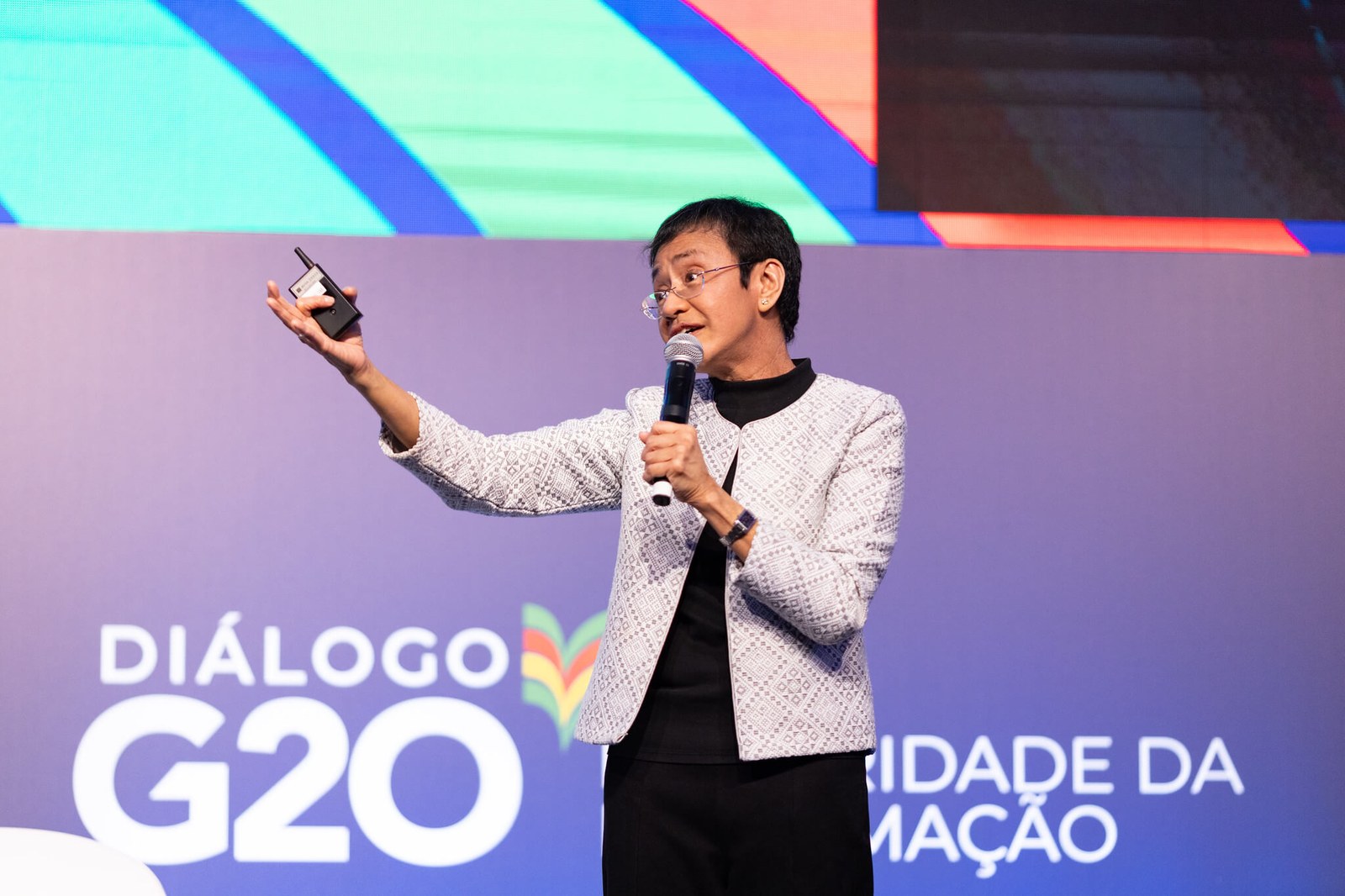Nobel laureate highlights risks associated with the absence of regulation for platforms
At a G20 Brasil side event, Philippino journalist Maria Ressa addressed the crucial role of information integrity in safeguarding fundamental freedoms.

Maria Ressa, 2021 Nobel Peace Prize laureate, participated in the G20 Digital Economy Working Group's information integrity event on the second day of the conference, Wednesday, May 1st, 2024, in São Paulo. With over 37 years of journalistic experience, Ressa is committed to upholding freedom of expression and protecting democracy. She holds the roles of co-founder, chief executive officer (CEO), and president at Rappler, the foremost news website championing press freedom in the Philippines.
The panel was moderated by Patrícia Campos Mello, a Brazilian journalist and reporter for the Folha de São Paulo newspaper. Mello is renowned for her comprehensive coverage of refugee and war-related stories, with extensive firsthand experience in regions such as Syria, Iraq, Turkey, Libya, Lebanon, Ukraine, and Kenya. Despite facing targeted campaigns of fake news and threats herself, Mello successfully secured legal reparations, which she regards as “a triumph for women's rights.”
Ressa initiated her presentation by elucidating her early recognition of the risks associated with social media and her efforts to alert the world to the dangers posed by a truth-deficient environment. She emphasized the importance of Brasil leading discussions on information integrity, given its substantial potential for global influence. Ressa highlighted that threats to democracy globally stem from the mobilization and dissemination of disinformation on social media platforms. Reflecting on the challenges faced, she remarked, “It's incredible what Brasil has gone through, it's the same as what we've gone through,” alluding to the attacks she endured for maintaining a journalism network dedicated to exposing threats to democracy in the Philippines.
The absence of regulation on social media platforms paves the way for a substantial surge in hate speech and the rampant spread of disinformation. Ressa strongly advocates for the immediate implementation of laws that hold these platforms accountable. “We need regulation to ensure information integrity,” she asserted.
She advocated that social media attacks predominantly aim at women and illustrated this with a deepfake video — a computer-generated fabrication — in which she promotes the use of cryptocurrencies. She recounted how hackers orchestrated this in an attempt to discredit her. Ressa also showcased graphs illustrating disinformation from far-right networks, conspiracy theories, and anti-vaccine sentiments in Asia, drawing parallels to similar occurrences in Brasil.
Journalism is a cornerstone of democracy, governed by established codes of conduct — a principle that remains inadequately applied in the online domain. Ressa emphasizes that addressing the current crisis in democracies requires a combination of legislative actions, regulatory frameworks, and initiatives aimed at enhancing the quality of journalism. Equally critical is the implementation of media literacy education programs and the fortification of fact-checking resources.
Following the presentation, Patrícia Campos Mello inquired about Ressa's perspective on similar risks associated with artificial intelligence. Ressa advocated for robust data protection measures and emphasized the importance of individuals retaining control over their own data. “Communities often relinquish their data without consideration,” she stated. Additionally, she highlighted concerns regarding the manipulation of content through advertising and the growing addiction to fake news and disinformation.